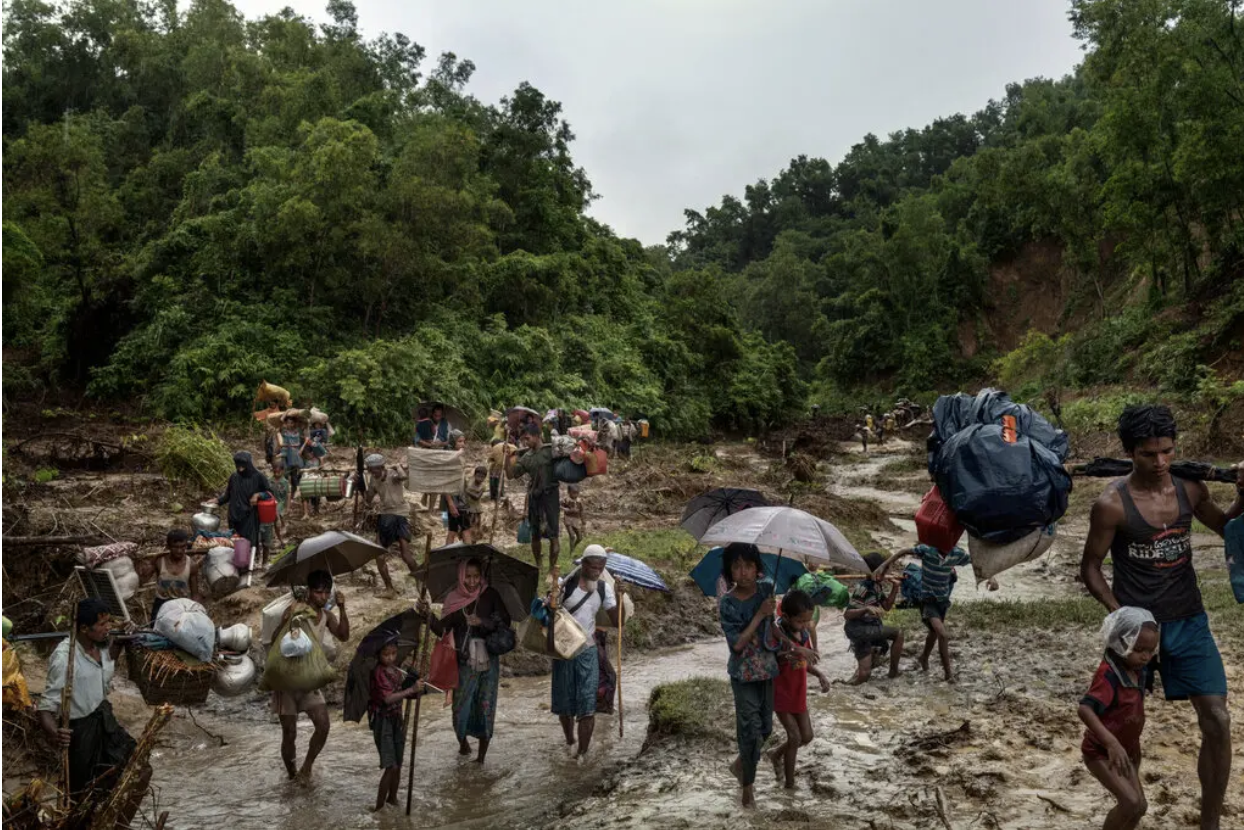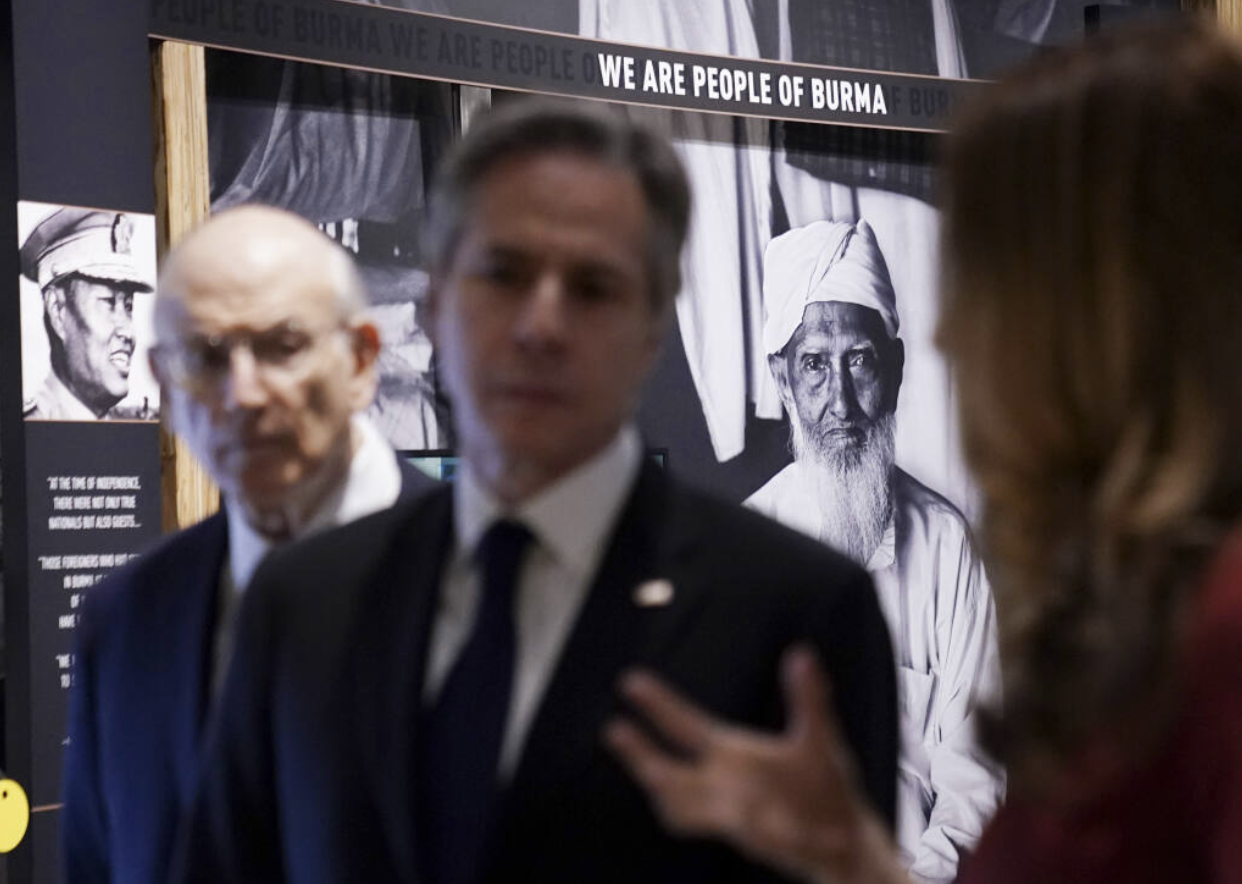US to Declare Actions by Myanmar’s Military a Genocide
Rohingya refugees crossing the border into Bangladesh from Myanmar in 2017. Photo: Adam Dean / New York Times
Secretary of State Anthony J. Blinken announced his intention to declare the actions of the Myanmar military against the Rohingya people a genocide. Following a visit to the US Holocaust Memorial Museum’s “Burma’s Path to Genocide” exhibit, Blinken made a formal statement, committing the Biden administration to “support[ing] the people of Burma as they strive to put the country back on the path to democracy.”
Since August 2017, the Tatmadaw have been accused of indiscriminately massacring and expelling Myanmar’s Rohingya, a Muslim ethnic minority group who have been based in the country for centuries. Alleged human rights violations include rapes, crucifixions, drownings and burnings of men, women and children. It is estimated that almost a million refugees have fled the country in response.
As an ethnic group that has yet to be officially recognized by the state, the Rohingyas have been denied citizenship in the country since 1982, and on this basis comprise the world’s largest stateless population. This has left them unprotected by state law and at increased risk of discrimination, persecution, and violence.
Secretary of State Anthony J. Blinken at the “Burma’s Path to Genocide” Exhibit at the United States Holocaust Memorial Museum. Photo: Kevin Lamarque / Pool via AP
Although the State Department first began investigating the situation four years ago, then-Secretary of State Mike Pompeo refused to make any formal accusations against the Tatmadaw, opting instead to describe it as “ethnic cleansing” - a term that, unlike genocide, instigates no official repercussions in international law. Pompeo never explained his refusal to do so, though it is believed to be connected to President Trump’s wish to maintain an alliance with the country in order to counter China’s power and influence in the region.
The decision is well received by the international humanitarian community, though some believe it comes too late. Anurima Bhargava, who formerly acted as the chairwoman of the U.S. Commission on International Religious Freedom, reflected on Blinken’s announcement within the context of ongoing geopolitical events in Ukraine. “Given what’s happening in the world, where we’re seeing what can happen if there’s power that goes unchecked, it’s a really critical time for this kind of determination to be made. Certainly, we would have wanted something earlier.”
With the military now in power following a 2021 coup, hopes for the country’s democratic development have been all but lost. In addition to the brutal acts of ethnic cleansing against the Rohingya people and the refugee crisis it instigated, the Tatmadaw have detained more than 12,000, including former civilian leader Daw Aung San Suu Kyi and at least 100 other elected officials. The country is also at risk of complete economic collapse, as the Tatmadaw is now deliberately blocking aid as a means of collectively punishing the country’s civilians.
Though the announcement will be followed by economic sanctions against the military junta, the US is being encouraged to take more formal legal steps. John Sifton, the Asia advocacy director of Human Rights Watch, says the US should encourage the UN Security Council to refer the Tatmadaw’s actions to the International Criminal Court, claiming they amount to crimes against humanity and apartheid.


